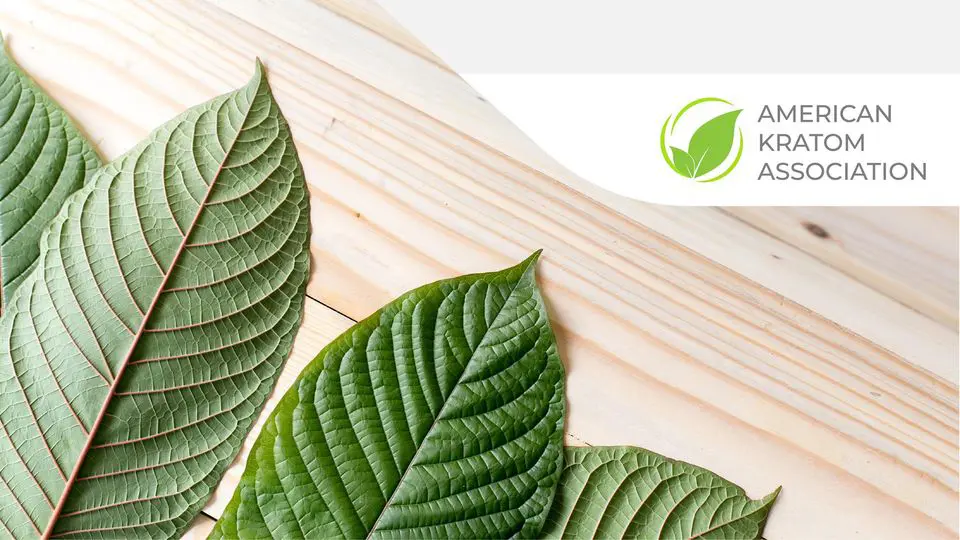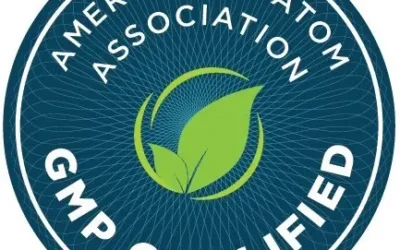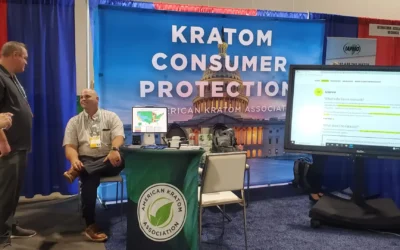The American Kratom Association
Kratom is a well-known herb frequently consumed worldwide, but its legal status is in a gray area. The attempts of the FDA and DEA to criminalize this herb have badly affected its global reputation.
Moreover, the negative media coverage and fake rumors have also played a role in making this botanical controversial. Kratom advocates do not appreciate these activities, so they often look for ways to keep this plant material legal. The same is the purpose of this article.
The American Kratom Association is leading the way in kratom advocacy efforts and ensuring that kratom remains legal in the United States.
What is the AKA?
It is a short form of the American Kratom Association – an official Speciosa advocate that has been operating since 2014 in the United States for the betterment of the Mitragyna industry. It is a non-profit organization established to keep Speciosa legal for every supporter. In case you don’t know what a non-profit entity is, this setup is built not to generate profits; instead, it works for public welfare and is run by donations or similar funds.
The AKA is a consumer group and not a kratom vendors association. They do offer a program for vendors, but the focus is on safe kratom for consumers.
AKA Leadership
Matt Salmon
CHAIRMAN OF THE BOARD
Matt Salmon, a former Arizona Representative, is now the Chairman of the Board of Directors for the American Kratom Association. Salmon is from Mesa, Arizona.
He has a bachelor’s degree from Arizona State University. He also has a master’s degree from Brigham Young University. He is currently a Vice President of Government Affairs at Arizona State University, a role he has held since 2017.
Matt Salmon spent over a decade in the telecoms industry in Arizona before becoming a member of the Arizona State Senate. He later became the assistant leader and head of the Rules Committee, then got elected to the U.S. Congress in 1994.
He served three terms before deciding to step down in 2000, then worked as a consultant for Arizona State University in matters regarding educational policy. He returned to Congress in 2012 and was re-elected in 2014. Salmon was a part of the House Committee on Foreign Affairs and is proficient in Mandarin.
Congressman Salmon has held prominent positions in Congress, such as chair of the Subcommittee on the Western Hemisphere and the Subcommittee on Asia and the Pacific, and has taken several trips to China. In 2016, he spearheaded a movement to oppose the FDA’s decision to classify kratom as a controlled substance to the DEA.
Salmon worked hard to get a group of Republicans and Democrats in Congress to fight against the prohibition of kratom. His dedication to ensuring consumers have the right to choose what they use to maintain their health was a major factor in the DEA’s decision to revoke the ban. He and Nancy have been married for four decades and have four children and nine grandchildren.
Ryan Burroughs
- Executive Director of the American Kratom Association
Ryan Burroughs has been serving as the Executive Director of the American Kratom Association (AKA) since March 2022. With a robust background in business, Ryan oversees the day-to-day operations and strategic initiatives of the AKA. His leadership is instrumental in advancing the organization’s mission to advocate for the rights of Kratom users, ensure product safety, and promote public awareness about the benefits and risks associated with Kratom use.
Chris Bake
- He is serving the AKA as a board member who has taken many efficient steps to take this organization to the next level.
He has been involved in various campaigns to raise awareness of the potential benefits of kratom, and has been a key figure in the efforts to ensure that kratom remains available as a natural dietary supplement for consumers. He is also an advocate for the rights of veterans, and has worked to ensure that veterans have access to the alternative treatments they need. His commitment to making sure that the public is informed and educated about kratom has been a major factor in its continued acceptance in the United States.
Jamie Ziegler
- A board member at AKA and is doing very well in the exponential growth of the whole setup.
Jami Ziegler has been a critical part of the kratom movement, working to make sure that the public is aware of the potential benefits of kratom. Helped to ensure that kratom remains available to consumers through her advocacy for natural dietary supplements.
Has also been an advocate for the rights of veterans, working to make sure that they have access to alternative treatments. Jamie’s commitment to educating and informing the public about kratom has been a driving force behind its acceptance in the United States. Major Goals of the American Kratom Association.
Mac Haddow
- Senior Fellow on Public Policy. Mac Haddow plays a crucial role in guiding the AKA’s advocacy efforts, particularly in navigating regulatory challenges and promoting the Kratom Consumer Protection Act (KCPA) across various states.
The American Kratom Association (AKA) recognizes that every effort should be made to keep kratom risks low, and protect consumers from adulterated and contaminated kratom products. With appropriate FDA consumer regulation, we can maximize the potential for kratom to be responsibly used for the improvement of health and well-being of individuals and public health in America.
These leaders, along with other dedicated members, are involved in various initiatives, including lobbying for kratom-friendly legislation, ensuring product safety standards, and educating the public about kratom’s benefits and uses. The AKA also collaborates with scientific experts and legal advisors to support their advocacy efforts and maintain transparency and accountability in their operations.
The American Kratom Association supports the following efforts:
1. Educating People
The AKA has played a key role for many years in educating the public, government bodies, and politicians. In addition, it also works with high authorities to ensure impactful people and organizations understand the real potential of this plant material.
2. Spreading Global Awareness
The American Kratom Association believes in spreading awareness worldwide to convince federal authorities to build standard legislation for buyers and sellers.
3. Protecting Natural Resources
Protecting Speciosa as a natural source is another leading goal of the AKA. Moreover, it also goes the extra mile to ensure sustainable growth and best harvesting practices.
4. Supporting Customers
One more potential aim of the American Kratom Association is to protect customers from buying contaminated and outdated stuff. The AKA believes that every consumer gets highly potent, safe, and consistent strains to benefit from.
How Can I Support AKA to Keep Kratom Legal?
There are different ways to support the American Kratom Association. Let’s go through them one by one.
Join KCC
- KCC is a short form for the Kratom Consumer Council. You can join this council to fight for Kratom and to promote its scientific study. This council often looks for volunteers, so you can join it whenever you want.
Act as a Kratom Protector
- To support the cause of the AKA, you can join hands with this organization to spread awareness in your region as a Kratom Protector.
Subscribe to the Newsletter
- This non-profit entity sends you newsletters every week to keep you posted. The newsletters cover different subjects, including but not limited to updates on the Mitragyna ban, legal concerns, current events, and support petitions.
Share Your Contribution
- You can also support the AKA by sharing your financial contribution. This body accepts donations worldwide and ensures every penny is being spent on public welfare. The donors can keep a check on where the money is being spent.
Sign a Petition
- You can sign AKA petitions to make the future of this botanical secure and bright. It has launched a secondary website (www.protectkratom.org) for petitions.
How Does the AKA Protect Kratom?
The two biggest AKA contributions include:
1. AKA-GMP certification
The acronym GMP stands for Good Manufacturing Practices. It is a set of rules designed to strictly bind sellers to follow high standards for manufacturing Kratom goods. These rules ensure that you get safe and 100% organic strains every time you purchase.
The AKA has introduced its GMP program to ensure every seller offers high-quality Kratom goods. The vendors with this certification can display the program approval on their websites to gain customers’ trust.
2. KCPA
The full form of KCPA is the Kratom Consumer Protection Act. It is another set of rules introduced to protect buyers from becoming victims of scammers. This act asks vendors to sell organic Kratom stock and makes buyers aware of how to evaluate the right product. Though different states have different KCPA versions, each has some common points.
According to KCPA, sellers must put appropriate labels on the packaging to let buyers know what ingredients are present in the product and the concentration of every ingredient. Moreover, it says consumers should not purchase Kratom products with more than a 1% concentration of 7-hydroxy-mitragynine. At the same time, people under 18 can’t buy Speciosa strains according to the Kratom Consumer Protection Act.
Truth in Labeling Program
The AKA is taking action against vendors who make false health claims about kratom products. In an effort to ensure the safety and integrity of the kratom industry, the AKA is launching a self-regulation program. This program targets vendors who make false health claims about their kratom products and fights against their deceptive marketing practices.
Under this self-regulation program, consumers are encouraged to report any labeling violations they come across. By reporting violations, consumers help the FDA take action against vendors who mislead with false health claims. This collaborative approach between consumers and regulatory authorities is essential in maintaining the credibility and trustworthiness of the kratom industry.
This program works with the AKA vendor GMP program to regulate itself. The AKA vendor GMP program sets standards and guidelines for kratom vendors to ensure the quality and safety of their products. The AKA aims to establish a framework for responsible practices in the kratom industry. This will be achieved through a combination of self-regulation and the vendor GMP program.
The AKA is working to protect consumers from false health claims. They are also ensuring that kratom products are accurately represented in the market. By encouraging transparency and accountability among vendors, the AKA aims to foster a safe and reliable marketplace for kratom products. Ultimately, the goal is to promote consumer well-being and maintain the integrity of the kratom industry as a whole.
Will AKA Be Able to Protect Kratom in the Future?
The American Kratom Association (AKA) has been actively and effectively advocating for the continued legality of Mitragyna, also known as kratom, in the United States. Through their dedicated efforts, they have made significant progress in raising awareness about the potential benefits of kratom and countering misconceptions surrounding its use.
The AKA has been tirelessly working to educate lawmakers, government agencies, and the general public about the positive aspects of kratom. They have conducted extensive research, compiled scientific studies, and gathered testimonials from individuals who have experienced the therapeutic effects of this natural plant. By presenting this evidence, they have been able to demonstrate that kratom can be a safe and beneficial alternative.
Furthermore, the AKA has actively engaged in legislative advocacy, lobbying for the protection of kratom at both the state and federal levels. They have worked closely with lawmakers to introduce bills that would ensure reasonable regulations, rather than outright bans or restrictions. Through their efforts, they have successfully prevented many proposed bans from being enacted and have even helped to reverse existing bans in certain states.
In addition to their legislative work, the AKA has also focused on self-regulation within the kratom industry. They have developed a Good Manufacturing Practices (GMP) program, which encourages kratom vendors to adhere to strict quality control standards. By promoting responsible manufacturing and labeling practices, the AKA aims to ensure that consumers have access to safe and reliable kratom products.
Despite the AKA’s commendable efforts, it is important to acknowledge that the future of kratom’s legality remains uncertain. While the AKA has achieved significant victories in the fight to keep kratom legal, there are still ongoing challenges and potential threats. The landscape of kratom regulation is constantly evolving, and it is difficult to predict how it will unfold in the long run.
However, with the AKA’s continued dedication and the support of the kratom community, there is hope that Mitragyna will remain legal and accessible to those who rely on it for its potential health benefits. The AKA’s ongoing advocacy, education, and self-regulation initiatives are crucial in ensuring that mitragyna speciosa is recognized for its potential as a natural remedy and that it is not unjustly stigmatized or banned.
But the future of this magical herb seems pretty bright and safe. It depends on how many people connect to the AKA to support its cause. If you want to keep Kratom going, join hands with AKA, and spread awareness anywhere you can.
How Can a Seller Get an AKA Approval?
Well, the process is super simple. A vendor has to apply for the relevant certification.
The AKA team plans to visit the vendor after finishing. They want to check if the vendor meets quality standards. Additionally, they want to see if the vendor sells products in sealed packaging.
The registration fee for AKA vendor certification is $5,000. The certified sellers have to renew the certificate yearly, and the renewal fee is $1,000. An American Kratom Association Audit is scheduled.
List of AKA-platinum vendors
The platinum vendors listed on the official website of the AKA are:
- OPMS Kratom (Optimized Plant Mediated Solutions)
- Chief Kratom
- Golden Monk
- King Kratom
- Whole Herbs
- Remarkable Herbs
- Kratom Kaps
- Choice Botanicals
Protect Kratom
The American Kratom Association was created to protect consumers and to ensure that official kratom products are being sold nationwide and that kratom vendors were adhering to consumer law. FDA regulations and consumer protection laws were put in place to protect consumers from unscrupulous business practices.
The federal food drug and cosmetic act was enacted to keep Americans safe from adulterated food and drugs. Check out the federal government websites for more information. We believe that kratom and other herbal remedies are here on this earth for us to utilize.
These herbs and plants were put on this earth for a reason. We are the ones who need to figure out what these herbs and plants are used for in our daily lives.
Herbal plants have been used for thousands of years before there was ever a Big Pharma. The period between 1918 and 1939 was marked by two breakthroughs that presaged the arrival of the pharma industry as we know it today.
Mitragynine and 7-hydroxymitragynine are the two most talked about alkaloids in kratom, but kratom tea from southeast Asia contains over forty alkaloids that have many uses. In the United States kratom consumers number in the millions.
We have the voices that need to be heard. We need to tell our story and stand up for kratom.
Today is September 13th, 2022. 6 Years ago, today I was standing in Washington D.C. with a sign that states Keep Kratom Legal.
We stood beside hundreds if not thousands of consumers that day. We were all there for the same reasons. Keep Kratom Legal.
We need that strong voice and comradery again now in 2022 into 2023. Our stories need to be told and we need to let others know how much it has helped us and made our lives better.
We are the ones that know kratom is not bad. Kratom is our tool that made our lives better. Please stand up for kratom and tell your story.
Takeaway
Are you concerned about how the American Kratom Association plays its part in protecting Speciosa from banning? Looking for ways to support the AKA’s cause?
The above discussion has got you covered. One effective way to keep AKA is to share your financial contribution. Support companies such as Christopher’s Organic Botanicals who supports kratom research.






0 Comments